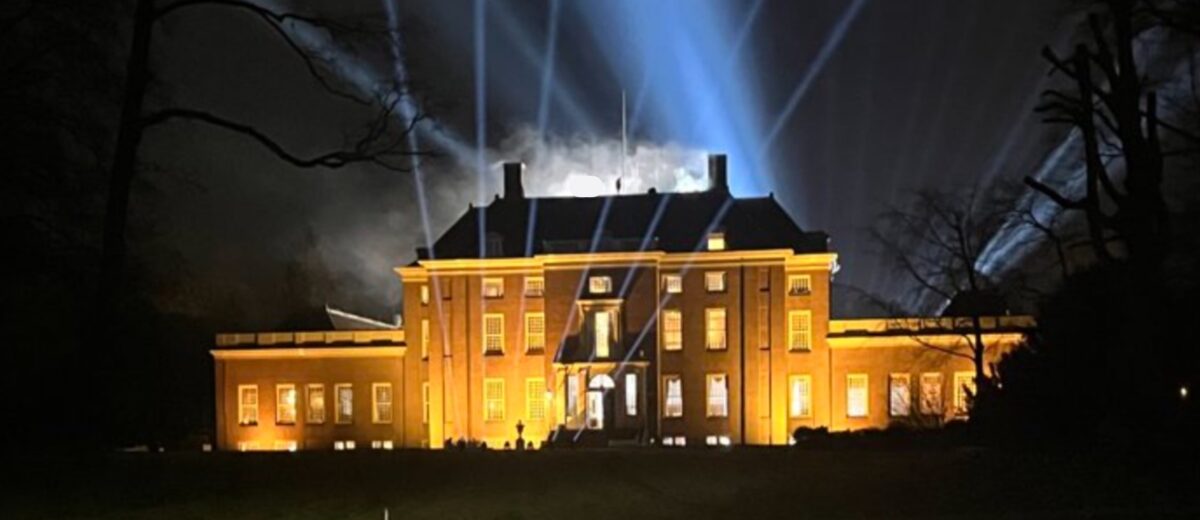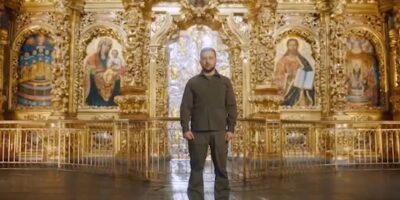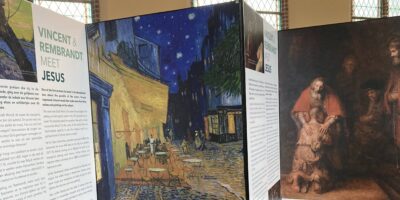He is risen indeed!!
Christians have greeted each other with this confession on Resurrection Sunday since early in the First Millennium. The resurrection of Jesus of Nazareth is the climax of the Big Story, the turning point that has shaped European history and continues to reshape world history.
Yes, there is a Big Story, despite claims from post-modern philosophers that ‘grand narratives’ are no longer viable in post-modern times. Alongside Greek fatalism, the Enlightenment and Marxist utopianism, they see the Jesus Story, ‘Christian Redemptionism’, as one more tool to legitimise power.
Yet all across Europe this weekend that ‘obsolete story’ is inspiring millions of believers and non-believers alike in countless music halls, churches and open air settings. In the Netherlands alone, Bach’s St Matthew Passion, for example, has been performed literally hundreds of times over the past weeks.
The evening before Good Friday, a open-air contemporary musical version of the Passion story, televised live each year since 2011, was enacted this time in the Dutch town of Zeist. Several millions watched well-known actors and singers playing Jesus, Peter, Mary and Judas. The resurrected Jesus sang the closing song from the roof of the castle, Slot Zeist (photo above), backdrop to the whole presentation.
Catalyst
Slot Zeist carried a significance probably lost on the actors and audience. For that castle was used in the 18th century by the Herrnhutters as an operations centre for spreading the Big Story of the risen Jesus to the Americas, Africa, Asia and the Arctic. Their example inspired William Carey and others to start the first missionary wave of Protestant missions, bringing the Big Story to the ends of the earth. That missions movement, according to researcher Robert Woodberry, was ‘a crucial catalyst initiating the development and spread of religious liberty, mass education, mass printing, newspapers, voluntary organisations, and colonial reforms, thereby creating the conditions that made stable democracy more likely’.
The Easter story is all about death and resurrection. As is Christianity itself. Many times in history, the church has prematurely been declared dead. Over a century ago, G. K. Chesterton said that at least five times in history the church seemed to be ‘going to the dogs’. Each time, however, it was the dog that died! Since then two more ‘dogs’ have died: fascism and communism.
Make that three ‘dogs’. For two decades ago New Atheism appeared with great fanfare on both sides of the Atlantic. The best-selling authors Richard Dawkins, Sam Harris, Christopher Hitchens and Daniel Dennett set out to ‘ridicule Christianity and Christians with contempt’. But as Justin Brierley, host of the popular podcasts Unbelievable? observes, the movement has since totally imploded and faded from public view. Brierley’s book, The surprising rebirth of belief in God, suggests that the rise out of secularism of what he calls the New Thinkers, urging a reconsideration of the Big Story of Jesus – like Jordan Peterson, Tom Holland and Ayaan Hirshi Ali – signals a turning of the tide of faith.
Soul
True, as the post-modernists claim, some Big Stories are deceptions used to hold on to or to regain power. For example, Vladimir Putin’s broadcasts about a big story of Russian glory. Or stories about stolen elections.
Yet Big Stories can inspire and envision. They can remind us of true events, true values and true meanings. Compare Putin’s stories with those Volodymyr Zelensky tells to his own people and to world leaders. On the third day of Russia’s invasion, the Ukrainian president reminded the world that what was happening was ‘not just a war against Ukraine, but against Europe, against the unity of Europe, against elementary human rights in Europe, against the peaceful co-existence of the countries of Europe – and against the fact that European states refuse to settle border disputes by force’. Zelensky’s relentless and persuasive rhetoric has helped to awaken Europe to unpleasant realities.
The Big Story of Jesus has profoundly shaped European politics and law, art and music, education and scholarship, language and literature, science and technology, economics and commerce, and much more. The rejection of this story has robbed the European project of the meaning and purpose originally envisioned by the founding fathers, Schuman, Adenauer and de Gasperi. They warned that the project was not just economic and technological. It needed a soul. Today’s Eurocrats seek pragmatic and technical solutions to multiple challenges facing the European community. At the popular level, scepticism and mistrust towards politicians is growing. Freedom, equality and brotherhood drift further away from our increasingly tribalised and polarised society.
The State of Europe Forum in Brussels on May 10 & 11, will be a wake up call to our true roots and identity, to true brotherhood and solidarity, and to a future true to the ‘European’ values of peace, freedom and human dignity – a hopeful future shaped by the resurrection of Jesus.
Registrations open later this coming week on stateofeuropeforum.eu.
Till next week,



